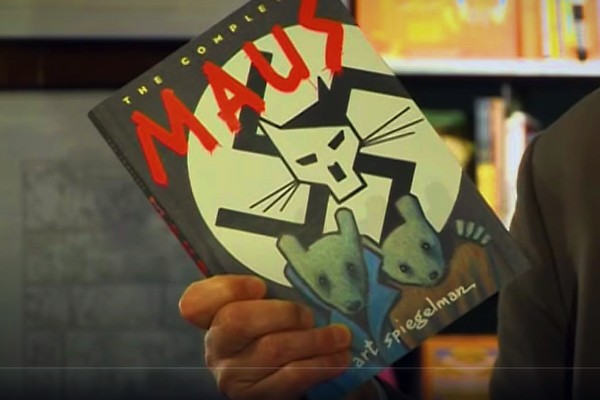Don’t let Tennessee’s McMinn County School Board take away an important book that has educated children about the Holocaust for 30 years.
Among Jews, Maus is a remarkable and widely read graphic novel that depicts the story of Art Spiegelman’s parents in Poland during the Holocaust, including their internment in the Auschwitz concentration camp.
Jews are depicted as mice while Germans are portrayed as cats. Originally serialized in 1980, the graphics were later collected and published in two volumes.
The book was an immediate success. A mix of history, memoir, biography, and fiction, Maus is the only graphic novel so far to win a Pulitzer Prize. The Pulitzer Committee artfully dodged the vexing question whether to treat Maus as fiction or non-fiction by awarding Spiegelman a 1992 Special Award in Letters.
Recognizing the power of Spiegelman’s storytelling, numerous school districts across North America have made Maus part of their Holocaust curriculum — generally from age 13. Until recently, it was in the 8th grade curriculum for Tennessee’s McMinn County School District.
That changed when the McMinn County School Board unanimously decided to drop Maus from the studies in January, citing the book’s “unnecessary use of profanity and nudity and its depiction of violence and suicide.”
“Taken as a whole, the Board felt that this work was simply too adult-oriented for use in our schools,” the board’s statement said.
The statement stressed that administrators have been tasked to find other ways to teach the Holocaust in what the Board described as “a more age-appropriate way.”
Critics of the board’s decision have pointed out that teaching the Holocaust requires some edge, because to do otherwise sugarcoats or waters down genocide. Spiegelman’s art is no more graphic than what middle school-age teens see on the internet every day. And Maus is certainly not as traumatic as active shooter drills, which Washington state lawmakers are now considering prohibiting from schools.
“This is not about left versus right,” Art Spiegelman told The Tennessean. “This is about a culture war that’s gotten totally out of control.”
In a pair of tweets, the U.S. Holocaust Museum cited the book’s significance for students.
“Maus has played a vital role in educating about the Holocaust through sharing detailed and personal experiences of victims and survivors. On the eve of International #HolocaustRemembranceDay, it is more important than ever for students to learn this history,” the museum tweeted.
“Teaching about the Holocaust using books like Maus can inspire students to think critically about the past and their own roles and responsibilities today,” the museum added.
Holocaust studies will continue, but McMinn County and its 5,500 students will be a little poorer in the absence of Maus. Holocaust survivors are fading away. So is public awareness, as evidenced by TV talk show host Whoopi Goldberg’s two-week suspension from “The View” for ill-advised comments about Nazi genocide.
Teaching the Holocaust in a compelling and age-appropriate way to the next generation is a challenge.
It’s such a shame that some educators are throwing away a meaningful book that has withstood the test of time.
Request that McMinn County School Board reconsider its decision.
Contact the board through Twitter.
Contact the board through Facebook.

